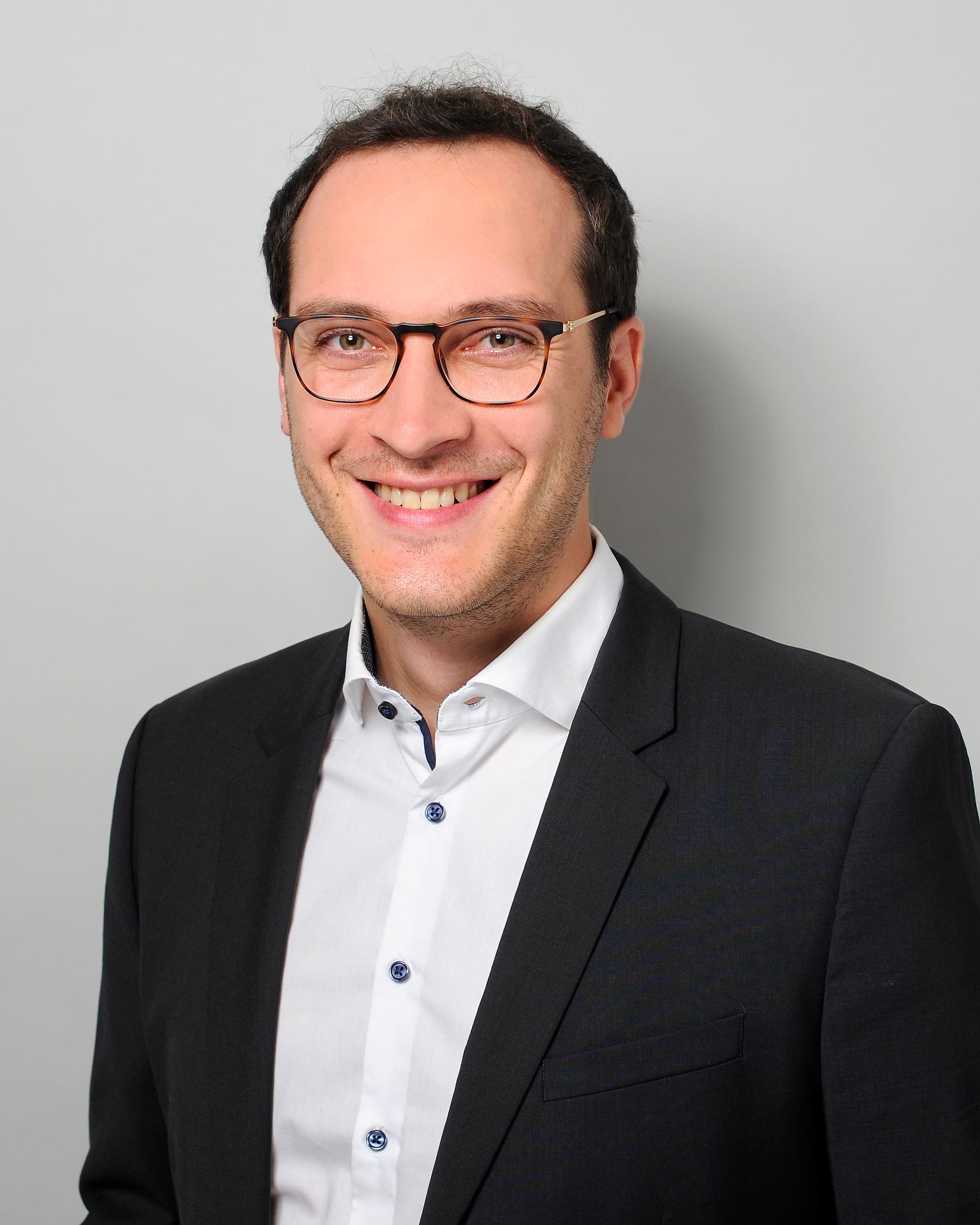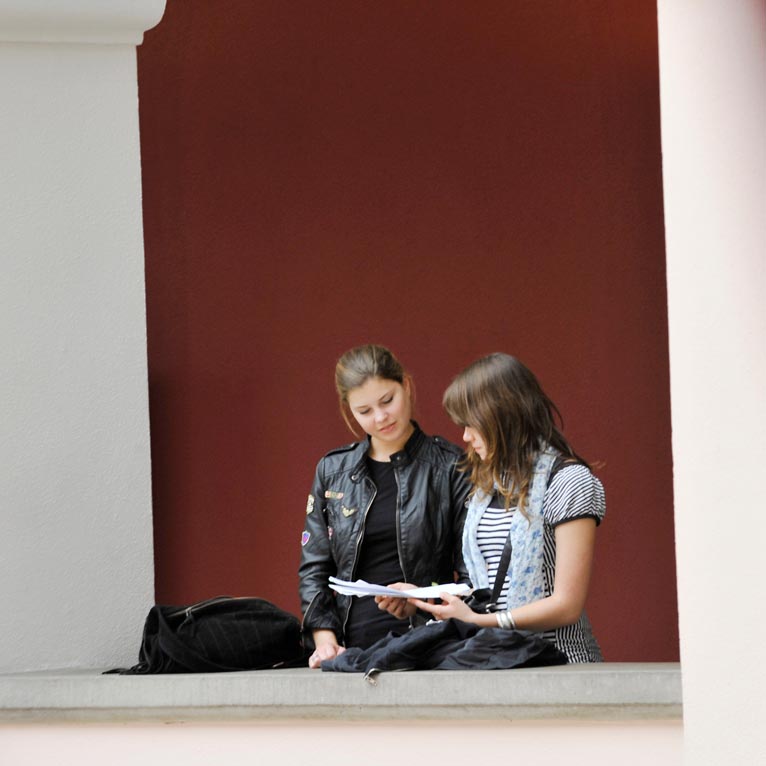The benefits of a historical approach
We are delighted to introduce Marcel Caesmann as our new UBS Center Scholarship holder. Marcel holds a BA in Sociology, Politics and Economics from the Zeppelin University in Friedrichshafen and an MSc in Economic History from the London School of Economics and Political Science (LSE). In 2020, he joined the Department of Economics’ Zurich Graduate School of Economics. Marcel is currently a visiting PhD Researcher at UC Berkeley. His research interests lie in Economic History, Political Economy, and Cultural Economics.
What inspired you to pursue research in economic history, and how do you see your work contributing to our understanding of contemporary economic challenges?
My fascination for Economic History stems from a deep curiosity about how economic circumstances and societies coevolve over time. From an academic perspective, I believe that taking a historical approach offers two major advantages. First, it allows us to observe long-term outcomes and study the lasting or transient effects of shocks, providing a deeper understanding of the underlying drivers of societal and economic change. Second, historical events often present intriguing natural experiments that can be leveraged to isolate and examine key causal factors through empirical analysis.
For example, when trying to understand the effects of protest marches on political outcomes in the modern era, it is extremely challenging due to the rapid spread of information through news and social media within seconds, making it unclear who directly observes or indirectly learns about the march. In a project with Bruno Caprettini, Hans-Joachim Voth, and David Yanagizawa-Drott, we go back in time to study the impact of Nazi marches on political polarization in 1932 Hamburg. This historical context enabled us to better measure direct exposure to the protest marches and trace how news spread through existing social networks at that time. Uncovering the underlying mechanisms of how protests can persuade or alienate, and how information disseminates through social networks, is highly relevant for comprehending the effects of contemporary protests.
Can you discuss a particularly intriguing or surprising finding from your research, and how it challenges or reshapes existing narratives in economic history?
There is a vast literature demonstrating how crucial religious identity is for various economic and social behaviors, ranging from investments in human capital and innovation to conflict and persecution. In economics, we often treat religious identities as static and given. However, my research reveals that religious markers of identity can be surprisingly malleable over time. In one of my projects, I study how distinct Catholic and Protestant religious identities developed in Early Modern Germany. Surprisingly, for the first few decades after the Protestant Reformation began, Catholics and Protestants shared many similarities. Conversions were frequent, trade and intermarriage across religious boundaries continued, indicating a significant degree of fluidity between the two groups. However, if we fast-forward 200 to 300 years, Protestants and Catholics seemed to inhabit distinct worlds, even when geographically proximate. They displayed strong differences in naming patterns, reading materials, and an almost complete absence of conversions and intermarriages.
My project aims to understand the factors that drove this dramatic shift, leading to the strong differentiation and polarization between the two confessions. By tracing these dynamics, we can gain insights into the underlying mechanisms that underpin polarization processes and their short-, medium-, and long-term economic consequences. This challenges the notion of religious identities as static, highlighting their potential for remarkable transformation and the profound impacts such shifts can have on societies and economies.
You are currently in the US for a research semester abroad. What are you working on these days and how does your stay at UC Berkeley help your research?
During my research semester abroad at UC Berkeley, I continue to make progress on my main project examining the evolution of religious identities and polarization dynamics. This stay is proving tremendously beneficial, providing ample opportunities for insightful discussions with my host professor, Gérard Roland, as well as other faculty and PhD students working on related topics in economic history and political economy. Berkeley hosts a vibrant community of researchers in these fields, creating a truly inspiring environment. The regular seminars and frequent visits by leading scholars allow me to expand my international network and stay abreast of the latest frontiers in my areas of interest. Moreover, being based in California enables me to participate in nearby conferences and workshops, further amplifying my exposure to world-class researchers. Just last week, I had the opportunity to present my research at the ASREC conference at Chapman University, and in a few weeks, I will be participating in a workshop on Economic History at Stanford. These events are instrumental in receiving constructive feedback, sparking new ideas, and growing my professional network.
Where can you benefit from valuable overlaps between Berkeley and Zurich?
The close ties between Berkeley and Zurich have greatly facilitated my integration into the Department here. These valuable connections exist at multiple levels. On one hand, the strong relationships between faculty members have opened many doors for me, ensuring that I feel fully welcomed and supported during my time at Berkeley. On the other hand, there are several PhD students at Berkeley who were previously my pre-doc colleagues in Zurich. This familiarity has helped me connect more easily with the doctoral student community, allowing me to explore potential collaborations and benefit from their insights and perspectives.
You are already advanced in your doctoral studies. What does the UBS Center Scholarship mean to you?
First and foremost, the UBS Center Scholarship serves as a great recognition for the progress I have made so far and provides a tremendous motivational boost to continue striving towards producing cutting-edge research in my field. It also opens doors to connect with a broader network of researchers and participate in the UBS Center’s activities, which can be an invaluable source of inspiration for identifying topics that are relevant and impactful for society. Beyond this, the material benefits of the scholarship are immensely valuable. The reduction in teaching load allows me to dedicate more focused time and energy towards advancing my research agenda. Furthermore, I am especially grateful for the research budget, as it enables me to scale up the collection and processing of large amounts of archival data that form the foundation of my work.
We are delighted to introduce Marcel Caesmann as our new UBS Center Scholarship holder. Marcel holds a BA in Sociology, Politics and Economics from the Zeppelin University in Friedrichshafen and an MSc in Economic History from the London School of Economics and Political Science (LSE). In 2020, he joined the Department of Economics’ Zurich Graduate School of Economics. Marcel is currently a visiting PhD Researcher at UC Berkeley. His research interests lie in Economic History, Political Economy, and Cultural Economics.
What inspired you to pursue research in economic history, and how do you see your work contributing to our understanding of contemporary economic challenges?
My fascination for Economic History stems from a deep curiosity about how economic circumstances and societies coevolve over time. From an academic perspective, I believe that taking a historical approach offers two major advantages. First, it allows us to observe long-term outcomes and study the lasting or transient effects of shocks, providing a deeper understanding of the underlying drivers of societal and economic change. Second, historical events often present intriguing natural experiments that can be leveraged to isolate and examine key causal factors through empirical analysis.

Awarding top academic talents
The UBS Center is a main funding body for top academic talent at the Zurich University’s Graduate School of Economics.
The UBS Center Scholarships are scholarships awarded every year to outstanding PhD students at the Graduate School of Economics, run by the Department of Economics at the University of Zurich. Furthermore, by funding new endowed chairs at the Department of Economics, the UBS Center will create additional doctoral positions for talented young researchers beyond the scholarship scheme. This will ensure that the Zurich Graduate School of Economics achieves a critical mass of top young talent to create a leading international graduate school with an attractive research environment. By strengthening the University of Zurich’s position as a destination for young academic talent around the world, the UBS Center also aims to further enhance Switzerland’s position as a top location for education and business more generally. After all, investment in higher education and research is a key factor in preserving and further growing economic prosperity in developed economies over the long term.
The UBS Center is a main funding body for top academic talent at the Zurich University’s Graduate School of Economics.
The UBS Center Scholarships are scholarships awarded every year to outstanding PhD students at the Graduate School of Economics, run by the Department of Economics at the University of Zurich. Furthermore, by funding new endowed chairs at the Department of Economics, the UBS Center will create additional doctoral positions for talented young researchers beyond the scholarship scheme. This will ensure that the Zurich Graduate School of Economics achieves a critical mass of top young talent to create a leading international graduate school with an attractive research environment. By strengthening the University of Zurich’s position as a destination for young academic talent around the world, the UBS Center also aims to further enhance Switzerland’s position as a top location for education and business more generally. After all, investment in higher education and research is a key factor in preserving and further growing economic prosperity in developed economies over the long term.

Contact
Marcel Caesmann holds a BA in Sociology, Politics and Economics from the Zeppelin University in Friedrichshafen and an MSc in Economic History from the London School of Economics and Political Science (LSE). In 2020, he joined the Department of Economics’ Zurich Graduate School of Economics. Marcel is currently a visiting PhD Researcher at UC Berkeley. His research interests lie in Economic History, Political Economy, and Cultural Economics.
Marcel Caesmann holds a BA in Sociology, Politics and Economics from the Zeppelin University in Friedrichshafen and an MSc in Economic History from the London School of Economics and Political Science (LSE). In 2020, he joined the Department of Economics’ Zurich Graduate School of Economics. Marcel is currently a visiting PhD Researcher at UC Berkeley. His research interests lie in Economic History, Political Economy, and Cultural Economics.